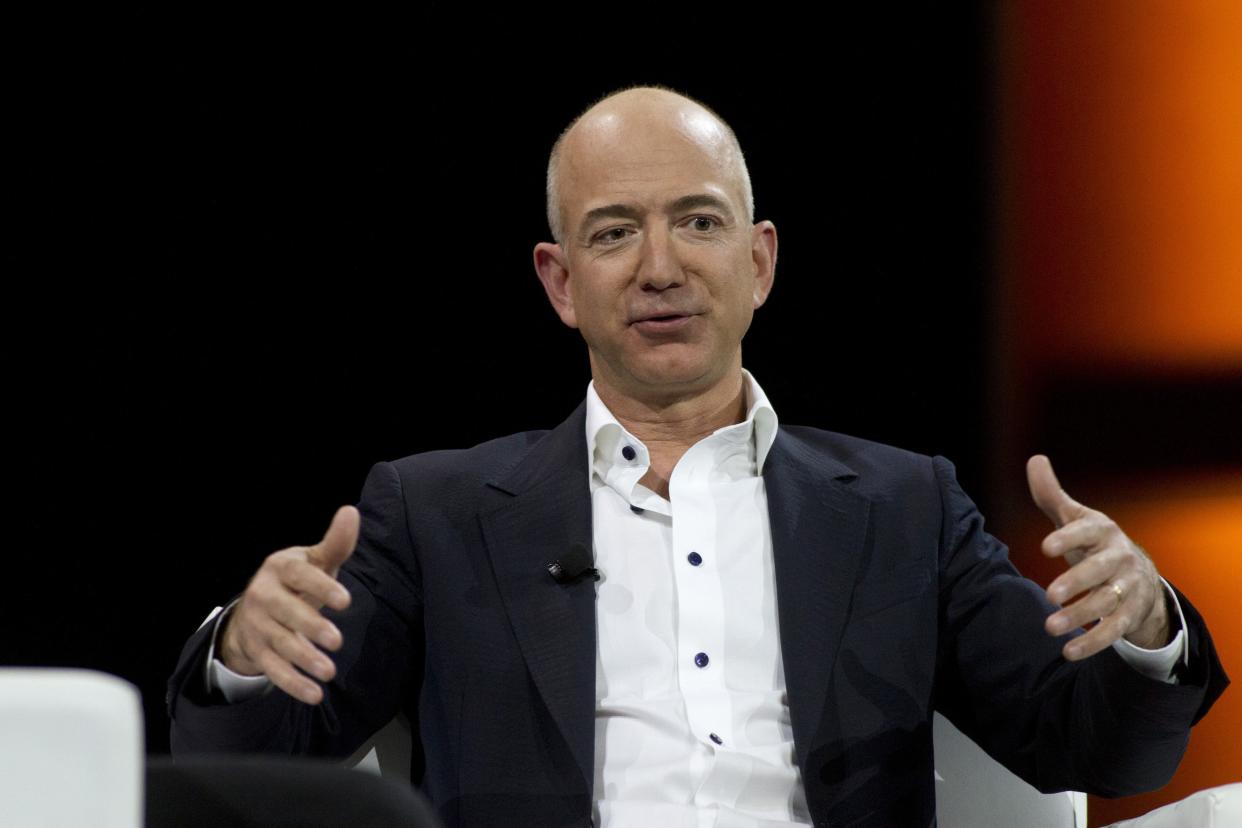Jeff Bezos, Kindle Matchbook and the American literacy epidemic

You might not immediately assume Jeff Bezos is, next to Oprah, the most important driver of continuing literacy, and literateness, America has. But as the introduction of the new Kindle Matchbook program, and the recent purchase of the Washington Post has reemphasized, the super-consumerist Amazon billionaire has been steadily taking his place as the literacy king of global capitalism.
When speaking of his new Washington Post purchase, for example, Bezos has started saying “readers” instead of “customers.” As Bezos has observed at Amazon, when you “consume” non-perishables like books, newspapers, electronics and even the copy-dense megasite that is Amazon.com, you’re reading. You're not eating, not consuming. In fact, the signature of the American "consumer" may now be the mental act of “consuming” digital, symbolic data: watching, listening and above all reading.
With media, books, texts and emails on mobile devices Americans in 2013 will now read anywhere — while they’re socializing, while they’re on the job, while they’re peeing. From a nation that couldn’t stop eating, we’ve become a nation that can’t stop reading (and maybe that also can’t stop eating, too).
But as day follows night, our current form of overconsuming might be overreading. Reading texts while driving. Reading message boards instead of sleeping. And buying multiple copies of books from Amazon, in print and in digital, in hardcover, softcover and plastic-back-cover.
Over the past two decades — roughly mapping the rise of Bezos’ Amazon.com — screens have proliferated, filling our purses, pockets and bedside tables. The living room is no longer configured around a single blazing digital fireplace; instead, it flashes with decentralized brushfires: E-readers, tablets, laptops, desktops, smartphones, televisions, refrigerator screens. As for the radios and bookshelves that were supposed to vanish with the digitalization of the American home, they’ve stubbornly remained, too.
No wonder shows called “Hoarders” and “Storage Wars” are what play on our innumerable screens. The revolution that was supposed to sweep everything away—blast out the fat from our analog-and-paper arteries, as Nicholson Baker ruefully imagined it 20 years ago—has actually introduced more clog. It has distributed the clog between digital and physical without reducing it.
So it should come as utterly unsurprising to find that readers who embraced Amazon’s brilliant Kindle e-reader haven’t yet burned all their traditional books and are, moreover, acquiring more. For about a year, I’ve found myself paying full price for digital and print editions of books I want to be sure always to have on hand.
So I’m relieved. This week, Amazon announced Kindle MatchBook, which allows customers to buy, for $3 or less, the e-book versions of books they’ve already bought in codex form. It starts in October. Did you buy that hardcover of “The Secret,” with the chewy red seal on it, from Amazon in 2006? Check back into Amazon next month and the same gibberish can be yours in e-form for somewhere between nothing and 3 bucks.
This is a canny economic move by Bezos and Amazon, of course — it’s not do-good charity meant to incite literacy and save the publishing industry. MatchBook takes advantage of the giant purchase history that Amazon has for all of its customers, and encourages those customers to buy (and, incidentally, to read) more.
It also takes advantage of a new and nervous mega-literacy. That mega-literacy, in which driving-while-texting is a common and fatal practice, is predicated on the idea that we must always be reading. This obsession is akin to the delusion (and actively-promoted illusion) of food scarcity that has led, in part, to American overconsumption of food for 40 years.
What does it mean to read—and screen—too much? At the biological and ethical level, we’re only now finding out. Hypotheses—alarmist, optimistic and otherwise—abound. At the economic level, it means that we’re buying copies of books we already have—suffusing our screens and bookshelves, along with our pantries, with hopeful redundancies, with stuff we don’t need. Hoarding stuff, both binary and tactile. Increasing the clog, not diminishing it. You know, the American way.




